Today, we live in a world where online platforms like Twitter and Facebook virtually allow anyone to say whatever the hell they want with impunity. But it was not always like this in the United States of America.
There is a popular American myth that our right to free speech means that anyone can say anything. Meaning, that if you want to verbally assault anyone or anything like the government, President, or police and yell obscenities at God-fearing religious people, you are protected by the First Amendment of the U.S. Constitution.
But this is simply not true.
Author, Professor Volokh, Professor of First Amendment law at the law school of the University of California, Los Angeles, says the people who wrote the First Amendment had a much narrower conception of free speech than is accepted today. He also has written the book, “The First Amendment: Law, Cases, Problems, and Policy Arguments.”
He has stated that for much of American history, the First Amendment did not prevent laws providing criminal punishment against people who engaged in antigovernment or obscene speech.
For example, in the past, people could not use their speech to attack our religious institutions like we see today where some atheists have become famous by making it a sport and their careers to blaspheme religion and mock its followers. The courts ruled that blasphemy was outlawed, and not just swearing against religion, but the public denial of the truth of Christianity could get you thrown in jail.
Some of the Founding Fathers of America, like President John Adams, were members of the Federalist Party who believed that maintaining a republican government required punishing those who falsely and maliciously criticized the government.
Adams had written, “Every individual is at liberty to expose, in the strongest terms, consistent with decency and truth all the errors of any department of the government.”
This also implied that there was no constitutional protection for politicians who deliberately misleading the public. “Because the Constitution guaranties the right of expressing our opinions, and the freedom of the press,” Federalist congressman John Allen asked rhetorically, “am I at liberty to falsely call you a thief, a murderer, an atheist?”
Stopping the spread of lies, Federalists insisted, was essential to maintaining a well-informed electorate and, thus, a republican government.
Up until the mid-1900s, our obscenity laws not only routinely convicted pornographers and so-called sex fiends but also book authors on educational literature such as sex education. The U.S. courts routinely ruled well into the 1960s that some antigovernment speech was constitutionally unprotected even when the speech did not result in violence.
Categories of speech that are given lesser or no protection by the First Amendment (and therefore may be restricted) include obscenity, fraud, child pornography, speech integral to illegal conduct, speech that incites imminent lawless action, speech that violates intellectual property law, true threats, and commercial.
However, today, virtually all corporate and alternative news networks make their living criticizing the government and making fun of the U.S. President. Anytime you turn on the TV or research news online, you can witness these news anchors, who most are highly paid to mock our government and President as they sow dissention among the people with their political rhetoric.
A lot of the news we see today is based upon half truths and half lies further confusing the populace. American philosopher and social critic, Noam Chomsky calls these people “Commisars” whose job is to maintain a system of doctrines and beliefs which will undermine independent thought and prevent a proper understanding and analysis of national and global issues. In Russia, commissars were in charge of communist political propaganda and indoctrinating the public with communist ideology.
Chomsky wrote:
“You don’t have any other society where the educated classes are so effectively indoctrinated and controlled by a subtle propaganda system – a private system including media, intellectual opinion forming magazines and the participation of the most highly educated sections of the population.
Such people ought to be referred to as “Commissars – for that is what their essential function is – to set up and maintain a system of doctrines and beliefs which will undermine independent thought and prevent a proper understanding and analysis of national and global institutions, issues, and policies”.
Over the last few years (2019 – 2022), there has been big shift and dividing line between “conservative media” and “liberal media”
For most of America’s history, we were much more conservative and traditional in our values, making free speech much less constitutionally protected than it is today. In fact, there was never a time like that in Modernity when almost all speech was protected.
But the facts are that free speech never meant that anyone could say whatever they wanted without impunity.
However, times have changed.
Pornography of all kinds, anti-religion rhetoric, and even Satanic organizations can be found everywhere in U.S. culture. Groups like Antifa and Black Lives Matter appear to act with legal impunity with their speeches calling for death and war in the streets as they stage violent protests against the police, government, and conservative groups. All the while the liberal media and government support these illegal activities and often praise these groups as they commit crimes across the nation.
How did this happen and who changed our laws?
There is a select group of liberals in our country who have been steadily undermining the U.S. Constitution. They have sat in some of the most powerful positions in politics, our courts, and educational institutions.
Two of the most famous liberals to sit in the highest positions of power in the Supreme Court were Justices Oliver Wendell Holmes Jr. (1841–1935) and Louis D. Brandeis (1856-1941). They were appointed to the Court by President Franklin D. Roosevelt and were generally associated with the liberal wing of the Court on most issues.
Their influence has not only changed the laws of this great country, they have changed the moral, ethical, and religious landscape of our country.
Today, a famous term for left leaning liberals who support various fringe social movements is “social justic warrior.” But men like Brandeis were Progressives who took it to the next level to the point he was called a “militant crusader for social justice.”
For example, when he was nominated for the supreme court, he faced all kinds of opposition like Justice William O. Douglas who wrote;
“Brandeis was a militant crusader for social justice whoever his opponent might be. He was dangerous not only because of his brilliance, his arithmetic, his courage. He was dangerous because he was incorruptible … [and] the fears of the Establishment were greater because Brandeis was the first Jew to be named to the Court.”
Brandeis became a leader of the Progressive movement where he used the law on multiple reform crusades as the instrument for social change from 1897 to 1916 playing a key role in shaping the jurisprudence of free political speech. Two of the infamous cases, Gilbert v. Minnesota (1920) and Whitney v. California (1927) dealt with the use of free speech by a military draft dissentor and a communist party’s member’s rights.
But no one changed American law and politics like Oliver Holmes had done.
He would be the de facto king of modern liberalism via the U.S. court system that has literally followed and maintained many of his decisions, marking a significant shift in American jurisprudence.
Benjamin N. Cardozo, the famed Associate Justice of the Supreme Court who would succeed Holmes, called his predecessor “the great overlord of the law and its philosophy.”
The Common Law, published in 1881, was Holmes’s giant contribution to neoliberal legal ideologies infiltrating the U.S. courts. Holmes writes;
“The life of the law has not been logic: it has been experience. The felt necessities of the time, the prevalent moral and political theories, intuitions of public policy, avowed or unconscious, even the prejudices which judges share with their fellow-men, have had a good deal more to do than the syllogism in determining the rules by which men should be governed.”
For his views and work in changing our laws, he had become known as the Great Dissenter.
Holmes had opposed the doctrine of natural law and advocated broad freedom of speech under the First Amendment. He wrote some of the most significant free speech decisions ever handed down by the Court. His neoliberal legal philosophy was in contrast to the prevailing jurisprudence of the time: legal formalism, which held that law was an orderly system of rules based on previous legal decisions.
According to author Albert Alschuler’s book, Law Without Values: The Life, Work, and Legacy of Justice Holmes, he bears a heavy responsibility as the “destroyer not so much of formalism but of the natural law tradition.” Alschuler wrote:
“The most valuable aspect is the interpretation of Holmes’s role in the development of American jurisprudence. The book depicts him as a destroyer not so much of formalism but of the natural law tradition. He says that, “Holmes was at the forefront of a revolution whose achievements were mainly negative.
This revolution was not a ‘revolt against formalism’ but a revolt against objective truth.
Where the law became what Holmes calls a “markeptplace of ideas” where “the best test of truth is the power of the thought to get itself accepted in the competition of the market, and that truth is the only ground upon which their wishes safely can be carried out.”
This one dissenting opinion in Abrams v. United States (250 U.S. 616 – 1919) by Holmes clearly defines his negation of legal tradition based upon truth and facts to the modern era of progressivism and neoliberalism. Holmes wrote:
“Persecution for the expression of opinions seems to me perfectly logical. If you have no doubt of your premises or your power and want a certain result with all your heart you naturally express your wishes in law and sweep away all opposition.
To allow opposition by speech seems to indicate that you think the speech impotent, as when a man says that he has squared the circle, or that you do not care whole-heartedly for the result, or that you doubt either your power or your premises.
But when men have realized that time has upset many fighting faiths, they may come to believe even more than they believe the very foundations of their own conduct that the ultimate good desired is better reached by free trade in ideas — that the best test of truth is the power of the thought to get itself accepted in the competition of the market, and that truth is the only ground upon which their wishes safely can be carried out. That at any rate is the theory of our Constitution.
It is an experiment, as all life is an experiment. Every year if not every day we have to wager our salvation upon some prophecy based upon imperfect knowledge.
While that experiment is part of our system I think that we should be eternally vigilant against attempts to check the expression of opinions that we loathe and believe to be fraught with death, unless they so imminently threaten immediate interference with the lawful and pressing purposes of the law that an immediate check is required to save the country.”
Holmes literally reinvented U.S. common law and the First Ammerndment in order to what I contend was to modernize it as a tool for neoliberals to control the U.S. legal system.
Professor Ronald K.L. Collins CLAIMS Holmes’s the titan of free speech jurisprudence:
“Holmes’s footprint on the American life of free speech is gigantic. Like Atlas, he is a titan in that world. No one else quite casts a shadow for so long. Although James Madison is the grand pater of the historical First Amendment, its modem father figure is surely Justice Oliver Wendell Holmes Jr….
His thought can be found in bold relief in many Supreme Court opinions on freedom of expression, in every contemporary history of the subject, in every casebook and textbook used in law schools and in colleges, and in every serious scholarly treatment of the matter.”
Holmes said that the law serves “social end[s] which the governing power of the community has made up its mind that it wants.”
In “The Common Law,” Holmes wrote, “The first requirement of a sound body of law is, that it should correspond with the actual feelings and demands of the community, whether right or wrong.”
Holmes was also said to be a mean man who was not only selfish, and cynical, he was a eugenist who believed in the survival of the fitest.
Some scholars such as Jan Vetter and Robert Gordon believe that Holmes spoke this way because he was an advocate of
Social Darwinism. They quote a passage from a 1873 essay Holmes had written on “The Gas-Stoker’s Strike.” Holmes wrote:
“The struggle for life … does not stop in the ascending scale with the monkeys, but is equally the law of human
existence…. The more powerful interests must be more or less reflected in legislation; which, like every other device
of man or beast, must tend in the long run to aid the survival of the fittest.
When one examines a contemporary society like was found even in the time of Holmes, one would have to define the so-called fittest has not being the most physically strong and most intelligent. No, they are the people who can simply follow and adhere to the ideological propaganda issued by the ruling elite and then repeat and kill for the same said ideologies.
“Many scholars have contended that Holmes was a cynic—icy and aloof, mean-spirited and dark, and supremely self-centered. To Budiansky, the Civil War made Holmes a skeptic—doubting and fatalistic—but not a cynic: it made him question “the morally superior certainty that often went hand in hand with belief: he grew to distrust, and to detest, zealotry and causes of all kinds.”
It also helped make him charming, exuberant, and very ambitious, searching, open-minded, and unquenchable. As he put it in a letter to a friend: “My old formula is that a man should be an enthusiast in the front of his head and a sceptic in the back. Do his damndest without believing that the cosmos would collapse if he failed.”
As the author, Paul O. Carrese describes in his book, “The Cloaking of Power: Montesquieu, Blackstone, and the Rise of Judicial Activism,” Oliver Wendell Holmes Jr. and the extraordinary influence he achieved in twentieth-century legal discourse to moderate law by splitting judicial procedure from jurisprudential essence.
Carrese wrote, “A clear concept of judicial legislating yielded by Holmes’s uncertainty about any fixed legal principle was intended to achieve a new social and legal order, one more adjusted to either current majority will or to be an evolutionary progress of the species.
Holmes avoided Montesquieu’s constitutionalism while appreciating other ends or aims of his philosophy, generally viewing it as a cosmopolitan, historicist humanism that survived its outdated efforts as a science of politics.
The Holmesean realism is criticized as being provided by both Montesquieuan jurisprudence and the classic common-law spirit because it poses severe obstacles that perpetuate the rule of law in a sound constitutional order.”
Budiansky describes as “the gamut of the law”—governing contracts, torts, property, wills, crime, and more—he reached conclusions that were “strikingly original, as well as a radical assault on legal tradition.”
Budiansky calls The Common Law “the single most important book in the history of American legal scholarship,” as others have similarly praised it. The book inspired the movement known as Legal Realism, which focused on law’s concrete effects rather than its formalistic axioms, and it remade American law.
Author, Steven J. Heyman argues in his essay “The Dark Side of the Force: The Legacy of Justice Holmes for First Amendment Jurisprudence” that many of Holmes’s views and decisions were contradictory to the First Amendment and actually undermined the nation’s values.
Heyman wrote
“Modern First Amendment jurisprudence is deeply paradoxical. On one hand, freedom of speech is said to promote fundamental values such as individual self-fulfillment, democratic deliberation, and the search for truth.
At the same time, however, many leading decisions protect speech that appears to undermine these values by attacking the dignity and personality of others or their status as full and equal members of the community. In this article, I explore where this Jekyll-and-Hyde quality of First Amendment jurisprudence comes from.
I argue that the American free speech tradition consists of two very different strands: a liberal humanist view that emphasizes the positive values promoted by free speech, and a darker vision that is rooted in the jurisprudence of Justice Oliver Wendell Holmes.
Holmes understands free speech as part of a struggle for power between different social groups—a struggle that ultimately can be resolved only by force.
After sketching the liberal humanist view, I trace the development of Holmes’s position, which is grounded in his Darwinian understanding of human life and in his deeper view that all phenomena in the universe are governed by force. Next, I evaluate the Holmesian approach and discuss its implications for a wide range of contemporary issues, from hate speech and pornography to the Citizens United decision on electoral advertising by corporations.
I conclude that Holmes’s view does not provide an adequate rationale for free speech, and that it undermines the liberal humanist principles that should be regarded as central to the First Amendment.”
According to, Albert Alschuler, Holmes did not only change the laws and morals of our country, he alleges it has led it to its destruction and I agree.
Alschuler said that Holmes legal decisions have led to the “disintegration of American society as a whole, which is in a horrible condition.
It’s evils, Alschurler claims are the “vices of atomism, alienation, ambivalence, self-centeredness, and vacuity of commitment” and its citizens are “indolent, cynical, and bitter – envious of those above, reproachful of those below, and mistrustful of those around them.”
Its sins are selfish-consumerism and electronic junk to crime, child-abuse, guns in school, and overweight teenagers.”
Alschuler single handedly eviscerates the hero of the liberal courts and neoliberalism.
He brings us to reality without sugar coating the damage that Justic Holmes as done to the American legal system and our culture as a whole. Alschuler also succinctly brings us back by reminding us of our American traditional values, morals, and personal responsibilities as they intersect with, and ultimately determine, the law.
But the facts are that Holmes’s neoliberal influence had already spread far and wide across the pond because he had often visited Great Britain and London during the years of his work as a lawyer and judge in Boston. He became one of the founders of the “sociological” school of jurisprudence in Great Britain, and then the “legal realist” school in America.
One could say that this was the true origins of “social justice” and “woke philosophy” that are the foundation of the dogmas of neoliberal ideologies.
Holmes would also control issuing propaganda of the neoliberal legal narrative in the U.S. by serving as an editor of the new American Law Review, reporting decisions of state supreme courts. In addition, he worked on a new edition of Kent’s Commentaries that published difficult to find case law for his fellow law colleagues.
Apparently, Holmes was very successful in his liberal efforts to change the laws of our country by infiltrating the courts, because many of his liberal views and legal decisions are still followed to this day. However, I would say that he only wounded the King Plato with his weak philosophical arguments, lies, and unjust laws that have almost ruined the landscape of our once-great nation.
The answer is for our legal system to analyze, debate and change the laws that continue to undermine the ideas, morals, and ethics that this one great nation had stood for.
To do so, as Phillip Johnson, Professor of law at the University of California at Berkeley says that we have to not only use logic, we must also understand that there is real evil and real good in the world in which the Rule of Law is supposed to protect the rights of the good from those who wish to do evil.
“We live in a world where evil exists in plenty, and often prospers. Moral skeptics have the best superficial arguments. But the life of the mind is a combination of logic and also experience, rightly interpreted. A mind in good condition knows that a philosophy that does not provide a foundation for moral knowledge is inadequate.
If you want to know about the law, and everything else, you must think as a good person (because we know that there really is such a thing), and affirm what every good person knows, and what every bad person also knows but suppresses.
There is a real good and a real evil, and the rule of law is a mechanism for maximizing the former and minimizing the latter.”
Our modern-day challenges such as what is bad and what is good to the issues affecting our culture and First Amendment law seem to always coincide at a time of national crisis like we have now.
As Bollinger claims;
“Our most memorable and consequential decisions under the First Amendment have emerged in times of national crises, when passions are at their peak and when human behavior is on full display at its worst and at its best, in times of war and when momentous social movements are on the rise,” he writes.
“Freedom of speech and the press taps into the most essential elements of life—how we think, speak, communicate, and live within the polity.
It is no wonder that we are drawn again and again into its world.”
SOURCES:
First Amendment and Related Statutes: Problems, Cases and Policy Arguments (University Casebook) 3rd Edition by Eugene Volokh
Noam Chomsky interviewed by various interviewers – Manufacturing Consent: Noam Chomsky and the Media, 1992See Vetter, supra note 105, at 362-67; Gordon, supra note 8, at 740; J.W. Burrow,
Holmes in His Intellectual Milieu, in THE LEGACY OF OLIVER WENDELL HOLMES, JR. 17,28-29 (Robert W. Gordon ed., 1992).
Quoting Oliver W. Holmes, Jr., Summary of Events: The Gas-Stoker’s Strike, 7 AM. L. REV. 582, 583 (1873)
Law Without Values: The Life, Work, and Legacy of Justice Holmes By Albert Alschuler
Harvard Magazine – America’s Great Modern Justice
The Cloaking of Power: Montesquieu, Blackstone, and the Rise of Judicial Activism – By Paul O. Carrese
Dumbing Down the Courts: How Politics Keeps the Smartest Judges Off the Bench By John R. Lott, Jr.
Steven J. Heyman, The Dark Side of the Force: The Legacy of Justice Holmes for First Amendment Jurisprudence, 19 Wm. & Mary Bill Rts. J. 661 (2011), https://scholarship.law.wm.edu/wmborj/vol19/iss3/4
Ronal L. Coleman: Prologue: Justice Holmes – Father of the Modern First Amendment
University of Chicago – What is the role of free speech in a democratic society?
Johnson, Phillip E. “LAW WITHOUT VALUES: THE LIFE, WORK, AND LEGACY OF JUSTICE HOLMES.” First Things: A Monthly Journal of Religion and Public Life, June 2001, p. 46.

Moe is the founder of GnosticWarrior.com. He is a father, husband, author, martial arts black belt, and an expert in Gnosticism, the occult, and esotericism.

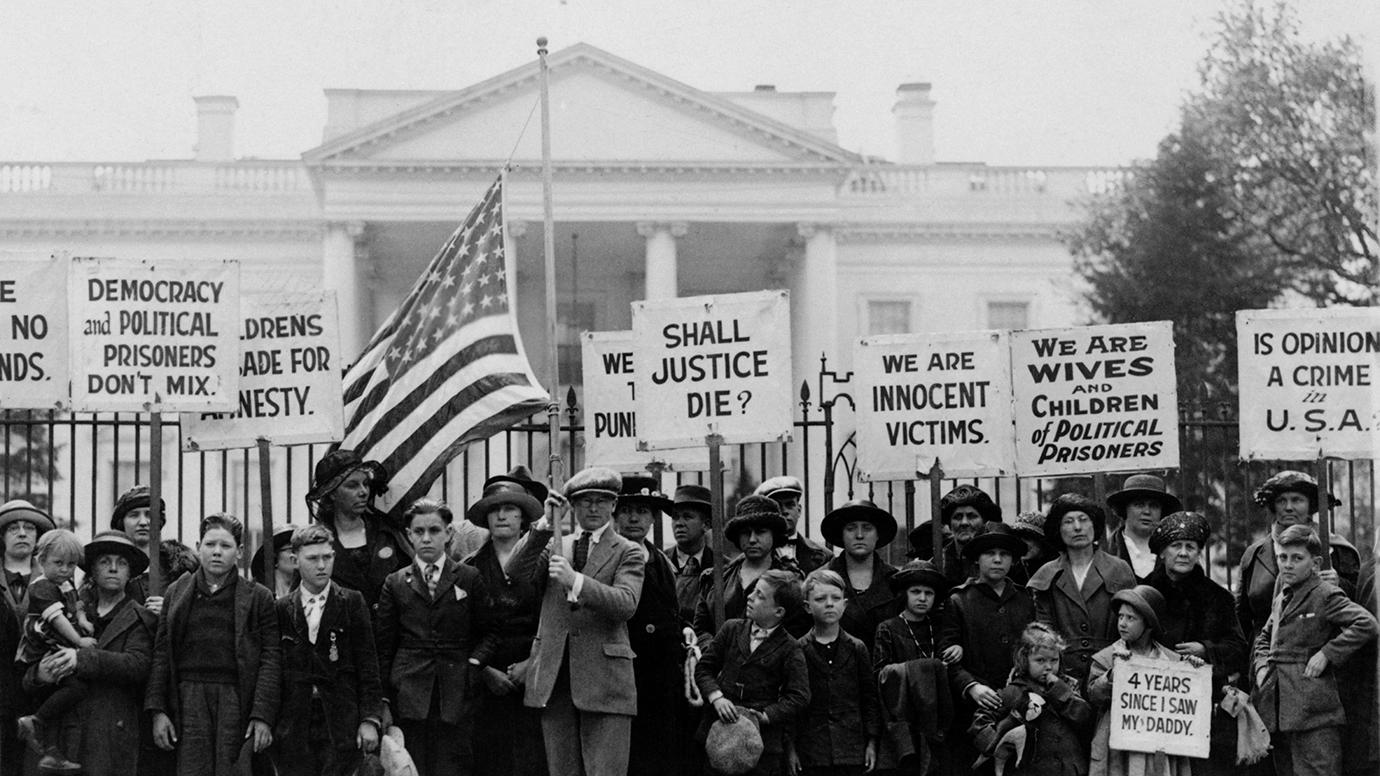
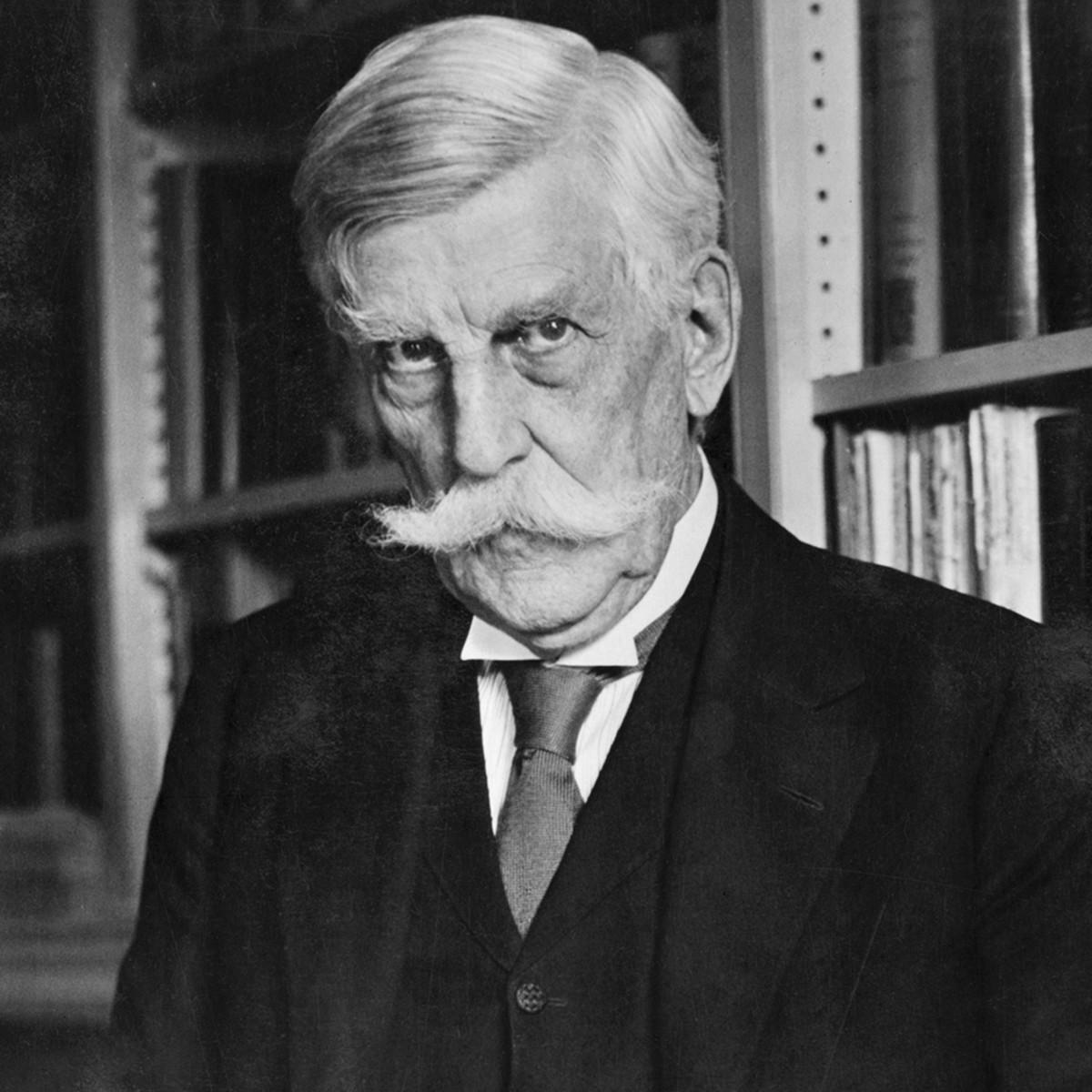
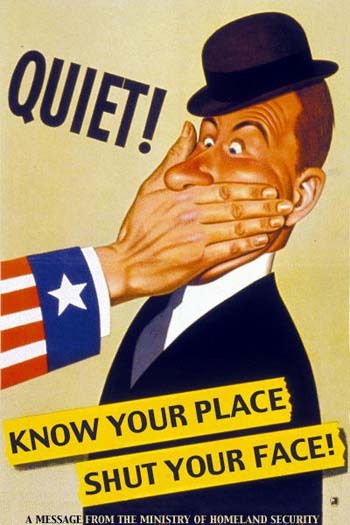
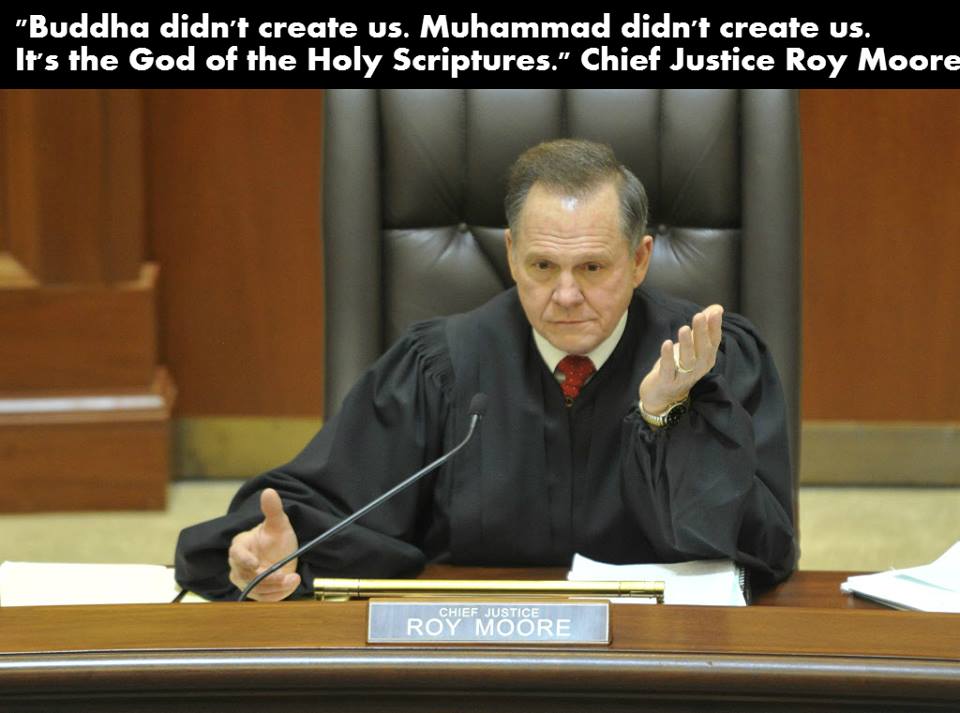


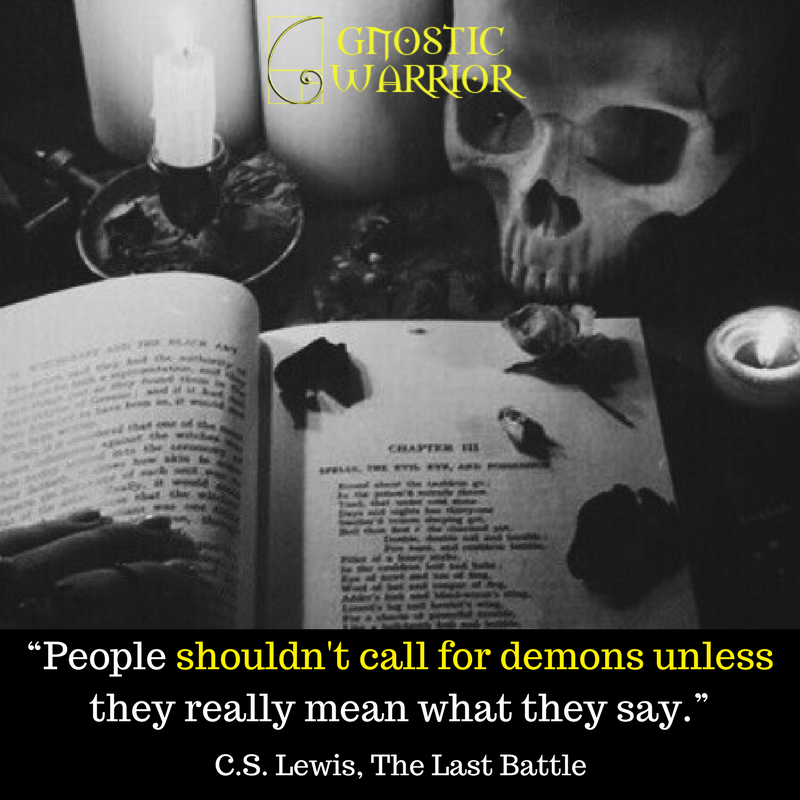
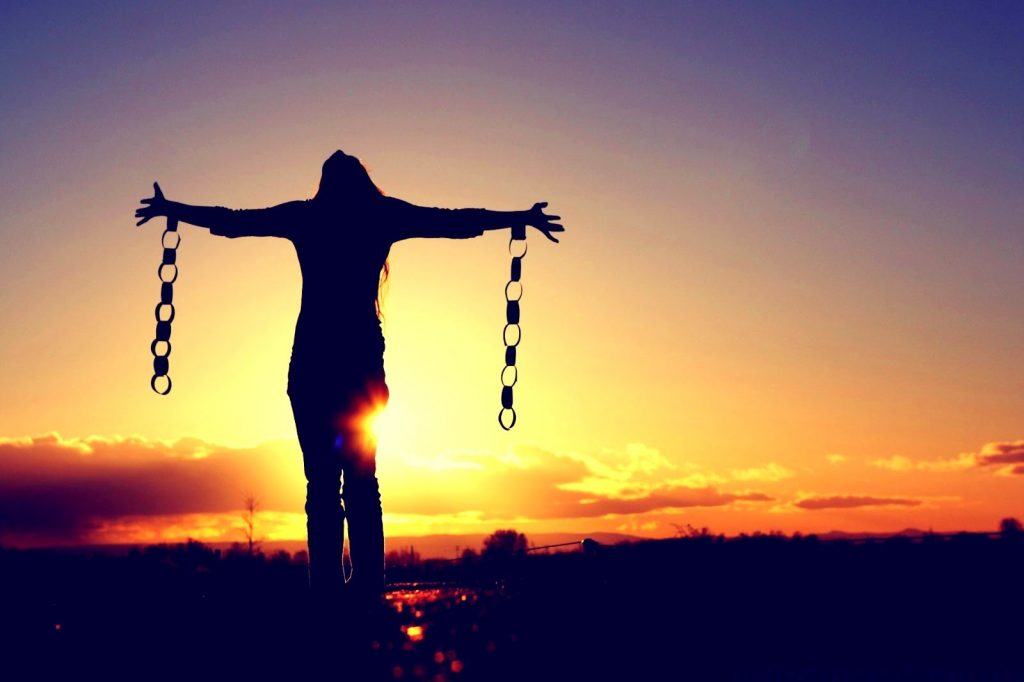

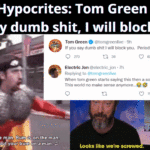
I don’t know where to put this, so I’m putting it under your latest article. I remember you talking about parasites and how they attach to the human host to greatly influence behavior. I thought you might find this .gov article interesting. It talks about parasites, bacteria or viruses being possible causes for Major Depressive Disorder.
https://www.ncbi.nlm.nih.gov/pmc/articles/PMC4215336/
Well written, Moe.